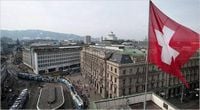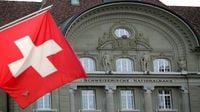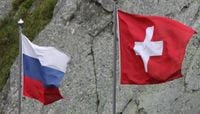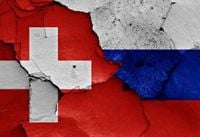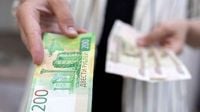On Tuesday, April 1, 2025, the Swiss government reported a significant increase in the value of frozen Russian assets in Switzerland, attributed to ongoing sanctions against Moscow. The total value of these assets reached 7.4 billion Swiss francs (approximately 8.38 billion dollars) at the end of March 2025, up from 5.8 billion francs a year earlier. This 1.6 billion franc increase reflects enhanced due diligence efforts by Swiss authorities, who have been scrutinizing and blocking additional funds as part of their response to the geopolitical tensions stemming from the war in Ukraine.
The sanctions against Russia have been extensive, with over 16,000 measures imposed on individuals and entities since the onset of the conflict. This has made Russia the most sanctioned country globally, with around 70% of its banking system's assets now subject to these restrictions. The economic impact has been profound, leading to a substantial loss of over 500 billion dollars, which could have supported military operations. The sanctions have also resulted in soaring inflation rates within Russia, prompting the Central Bank to raise interest rates to 21% in February 2025 in an attempt to mitigate the economic fallout.
According to Khaled Al-Awadi, an energy market advisor at Hawk Energy, the situation regarding oil sanctions is evolving. He noted that the U.S. sanctions on oil are beginning to show signs of opening up, which could influence global oil markets positively if a peace agreement is reached between Russia and Ukraine.
The backdrop to these financial developments is the ongoing conflict that began with Russia's military operations in Ukraine on February 24, 2022. The war has not only destabilized the region but has also prompted Western nations to impose strict economic sanctions aimed at crippling Russia's economy and limiting its military capabilities. The sanctions have targeted key sectors, including banking and energy, which have been crucial for Russia's economy.
In a significant escalation of the conflict, Russian President Vladimir Putin announced the annexation of four Ukrainian regions: the self-proclaimed Donetsk People's Republic, Luhansk People's Republic, Kherson, and Zaporozhye. This move was met with widespread condemnation from the international community and further sanctions against Russia.
Despite the severe economic pressures, the Russian government has set a goal to reduce its budget deficit to 0.5% of GDP for the year. However, initial reports indicate that the deficit has already risen to 1.3% in the first two months of the year, raising concerns about the effectiveness of current economic strategies.
While recent discussions between the U.S. and Russia have sparked hopes for a potential peace settlement, these talks have not yet translated into any tangible ceasefire agreements. The ongoing military actions, including significant strikes on Ukraine's infrastructure, continue to exacerbate the situation.
As the situation develops, the Swiss government remains committed to enforcing sanctions while monitoring the financial landscape closely. The increase in frozen assets underscores the complexities of international finance in the context of geopolitical conflict, illustrating how financial measures can serve as both a tool for diplomacy and a reflection of ongoing hostilities.
In conclusion, the rise in frozen Russian assets in Switzerland highlights the ongoing economic ramifications of the conflict in Ukraine. As both sides navigate this challenging landscape, the future of international relations and economic stability remains uncertain.
